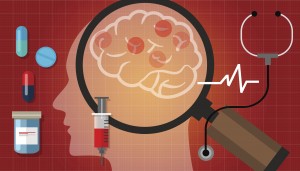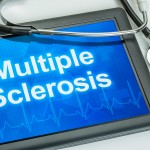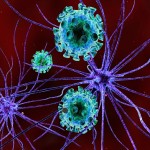Multiple sclerosis vs. Parkinson’s disease, differences in symptoms, causes, and treatment
 Multiple sclerosis (MS) is an autoimmune condition that affects the nervous system, while Parkinson’s disease is a progressive neurological disorder affecting movement. Symptoms of multiple sclerosis and Parkinson’s disease are quite similar at times, but there are distinct differences setting the two conditions apart.
Multiple sclerosis (MS) is an autoimmune condition that affects the nervous system, while Parkinson’s disease is a progressive neurological disorder affecting movement. Symptoms of multiple sclerosis and Parkinson’s disease are quite similar at times, but there are distinct differences setting the two conditions apart.
Causes of multiple sclerosis and Parkinson’s disease are not well known, although there is some speculation to their roots. We will outline those speculated causes and highlight the symptoms, risk factors, complications, treatment, and therapies for both multiple sclerosis and Parkinson’s disease to raise your awareness on each disorder.
Link between multiple sclerosis vs. Parkinson’s disease
Researchers have found that nerve pathways in the gut and the brain may be linked to multiple sclerosis and Parkinson’s disease. Dr. Anton Emmanuel explained, “The gut and brain share the same nerve chemistry and have a dialogue. That’s why when you feel stress and other strong emotions, such as fear, it leads to gastrointestinal symptoms, like rushing to the [bathroom].”
The study suggests that an unhealthy gut can trigger the onset of brain disease as the signals from brain to gut can also travel in the opposite direction – from gut to brain. The findings of the study were published in the journal Movement Disorders where researchers found that Parkinson’s disease sufferers have a higher prevalence of small intestinal bacterial overgrowth (SIBO).
The researchers suggest the bacteria produce toxic chemicals affecting the nerves in the gut and this way causing damage to the brain. This can bring about the onset of multiple sclerosis or Parkinson’s disease.
Dr. Emmanuel said, “We now think that neurological diseases such as MS and Parkinson’s are linked to the gut being more leaky, permitting pathogens into the bloodstream and causing an antibody response. Either the pathogens, directly, or the immune response, indirectly, may damage nerve tissue.”
Researchers are now exploring bacterial genomes that can help identify the bacteria so that doctors can specifically treat it as a means of preventing Parkinson’s disease and multiple sclerosis.
Multiple sclerosis vs. Parkinson’s disease: U.S. prevalence and economic impact
 Anyone can develop multiple sclerosis, but it mostly affects 20- to 40-year-olds. Prevalence of multiple sclerosis in the U.S. is estimated at over 400,000 cases, and nearly 200 new cases are diagnosed each week. Rates of multiple sclerosis are highest in areas furthest away from the equator, so the rates are higher in the Northern U.S.
Anyone can develop multiple sclerosis, but it mostly affects 20- to 40-year-olds. Prevalence of multiple sclerosis in the U.S. is estimated at over 400,000 cases, and nearly 200 new cases are diagnosed each week. Rates of multiple sclerosis are highest in areas furthest away from the equator, so the rates are higher in the Northern U.S.
Direct and indirect costs resulting from multiple sclerosis can range from $8,528 to $54,244.
One million Americans live with Parkinson’s disease. The average cost of Parkinson’s disease including treatment, lost work wages, and social security payments is $25 billion annually in the U.S.
Differentiating multiple sclerosis symptoms with Parkinson’s disease
Signs and symptoms of multiple sclerosis include numbness or weakness in one or more limbs, partial or complete vision loss, prolonged double vision, tingling or pain, electric-shock sensations, tremors and lack of coordination, fatigue, dizziness, slurred speech, and problems with bowel and bladder function.
Parkinson’s disease symptoms typically begin with tremors followed by muscle stiffness, difficulty standing or walking, changes in speech, slow movements, impaired posture and balance, loss of automatic movements, and writing changes.
As you can see, Parkinson’s disease and multiple sclerosis do have some symptoms in common, which can make early diagnosis difficult.
Comparing multiple sclerosis and Parkinson’s disease causes
 Multiple sclerosis is an autoimmune disease in which the immune system attacks the myelin, causing damage and thus exposing nerve fibers. Like many autoimmune diseases, the exact cause is unknown, but environmental, immunologic, infectious, and genetic factors have all been found to play a role in the onset of multiple sclerosis.
Multiple sclerosis is an autoimmune disease in which the immune system attacks the myelin, causing damage and thus exposing nerve fibers. Like many autoimmune diseases, the exact cause is unknown, but environmental, immunologic, infectious, and genetic factors have all been found to play a role in the onset of multiple sclerosis.
When certain nerve cells in the brain begin to die or break down that is what causes Parkinson’s disease, but why this occurs is unclear. Some factors that contribute to nerve cell death include genetics as specific gene mutations have been identified to contribute to Parkinson’s disease, environmental factors such as exposure to certain toxins, the presence of Lewy bodies in the brain as well as alpha-synuclein found in Lewy bodies.
Multiple sclerosis vs. Parkinson’s disease: Risk factors and complications
Risk factors for multiple sclerosis include being female, having a family history of multiple sclerosis, having certain infections, being white of European descent, living furthest from the equator, living in temperate climate regions, already having an autoimmune disease, and smoking.
Complications resulting from multiple sclerosis include muscle stiffness and spasms, paralysis, problems with bladder, bowel, and sexual function, as well as forgetfulness, mood changes, depression, and epilepsy.
Risk factors for Parkinson’s disease include being over the age of 50, being male, having a family history of Parkinson’s disease, carrying gene variations, experiencing a head injury, being exposed to environmental toxins, and taking certain medications such as anti-anxiety medications or sleeping pills.
Complications associated with Parkinson’s disease include difficulty thinking, depression, emotional changes, swallowing problems, sleep problems and disorders, bladder issues, constipation, changes in blood pressure, smell dysfunction, fatigue, pain, and sexual dysfunction.
Multiple sclerosis vs. Parkinson’s disease: Treatment and therapies
 Treatment for multiple sclerosis is lifelong, and although it cannot cure the condition, it aims to minimize symptoms and allow the patients to live as normal of a life as possible. Some treatment methods include corticosteroids and plasma exchange, beta interferons, Glatiramer acetate, Dimethyl fumarate, Fingolimod, Teriflunomide, Natalizumab, Alemtuzumab, and Mitoxantrone, which all help to reduce the likelihood of relapses.
Treatment for multiple sclerosis is lifelong, and although it cannot cure the condition, it aims to minimize symptoms and allow the patients to live as normal of a life as possible. Some treatment methods include corticosteroids and plasma exchange, beta interferons, Glatiramer acetate, Dimethyl fumarate, Fingolimod, Teriflunomide, Natalizumab, Alemtuzumab, and Mitoxantrone, which all help to reduce the likelihood of relapses.
Other treatment methods include physical therapy to improve mobility, muscle relaxants, medications to reduce fatigue, and other medications like antidepressants, medications to control the bowels and bladder, and medications to improve sexual function.
Exercise, meditation, yoga, and acupuncture are also recommended as a means to reduce stress and improve overall mental and physical well-being.
There is no cure for Parkinson’s disease as well, but treatments are available to manage the symptoms and slow down the disease progression as much as possible. Alongside traditional treatments, supportive therapies are also used to improve different aspects of a person’s health.
Common medications prescribed in Parkinson’s disease include dopamine replacement therapy, dopamine agonists, anticholinergics, amantadine, monomine oxidase type B inhibitors, and catechol-o-methyl transferase inhibitors.
Surgery is also a treatment option for Parkinson’s disease and is best suited for those who had a good response to levodopa, but still have difficulties with movement or who experience large fluctuations in their levodopa levels.
Supportive therapies for Parkinson’s disease include physical therapy to improve movement, occupational therapy, speech and language therapy, and diet modifications such as increasing fiber and salt intake, eating frequently but in smaller portions, and adjusting the diet to prevent unintentionally weight loss.
You can work closely with your doctor to create a specific treatment plan for you.
-
Top Weight Loss Tricks - Typical Diets That Work
Putting together healthy meal plans each week may seem like a lot of w
-
Misconceptions About Weight Loss Surgery Cause Disappointment For Patients
As weight loss surgery becomes an increasingly popular treatment for m
-
Seven Very Simple And Common Sense Ways To Get The Weight Off And Stay Healthy
Even if you follow just one of these seven steps towards healthy weigh
-
How To Eat The Raw Food And Lose The Weight
There are several various kinds of fat reduction plans which we may
-
Chinese Herbs: A Different Approach To Hair Loss Treatment
There is no doubt about no one wants to lose their hair. If you have i
-
We Are Water! We Are Water!
Without Water One thing that always amuses me when I hear someone c
- DON'T MISS
- Get Ready for Bikini Season Part 2: The Exercise
- A 5-Minute Fat-Burning Workout (Video)
- Choose Weight Loss Programs Carefully For Better Effects
- Know About the Extreme Weight Loss Methods
- Tips for Fat Loss Dieting
- Two Reasons to Squash That Middle-Age Spread
- Hitting Two Birds At The Same Time - Detox Diet Recipes
- 12 Ways to Stay Active When Its Too Hot to Work Out
- Chinese Weight Loss Tea
- Top 7 Motivational Weight Loss Tips




